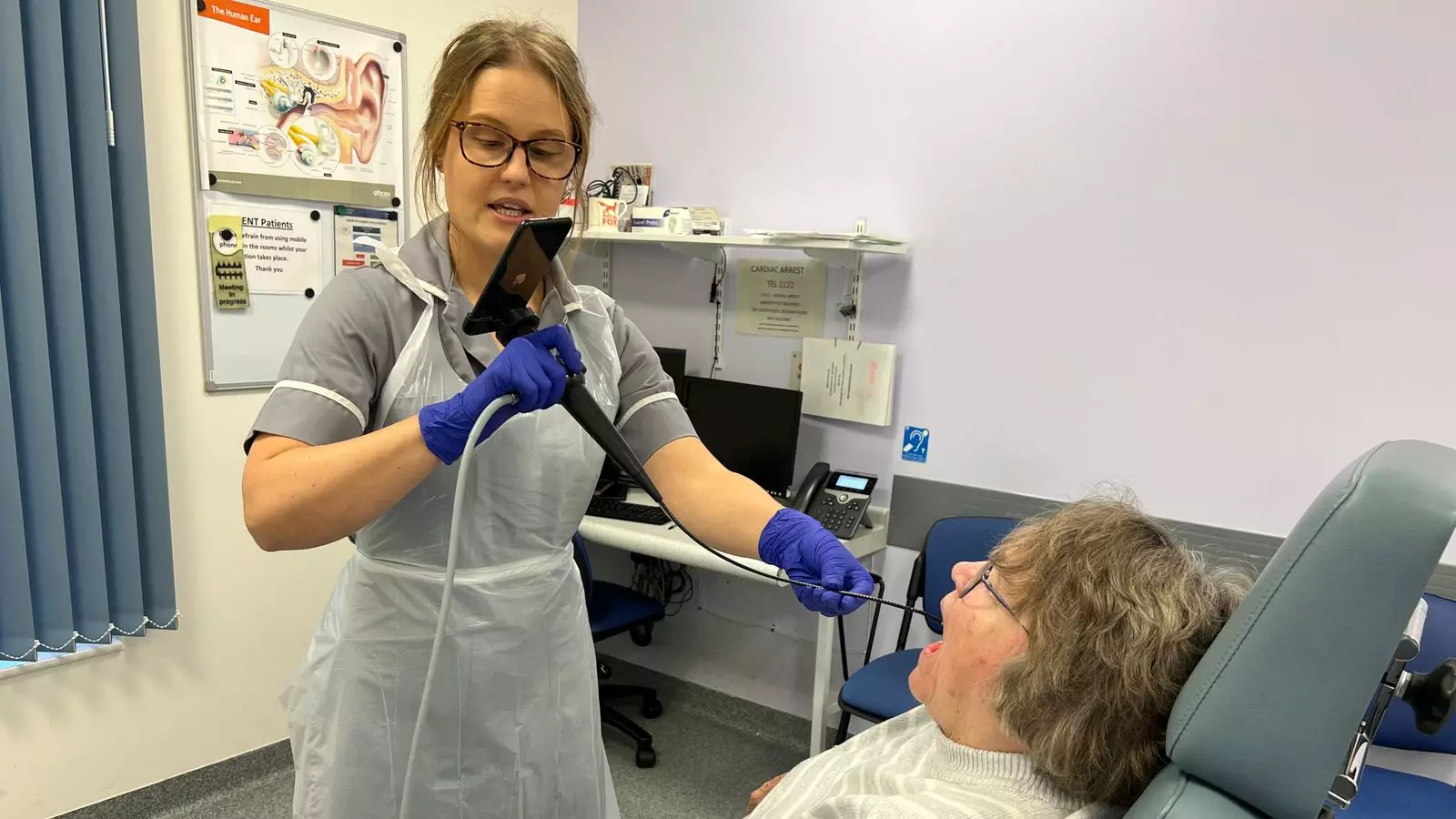The National Health Service (NHS) in the United Kingdom has embarked on an innovative trial involving a new smartphone accessory—a device designed to detect throat cancer with remarkable speed and accuracy. This technology aims not only to alleviate anxiety for patients awaiting results but also to streamline the diagnostic process significantly. With the potential to deliver same-day results, this revolutionary device could transform the way throat cancer screenings are conducted, enabling healthcare providers to diagnose thousands more patients earlier and more efficiently.
Traditionally, diagnosing throat cancer involves an endoscopy, which is both invasive and often a source of concern for patients. The new endoscope-i adapter, which connects to an iPhone, represents a significant advancement in patient-centered care. It incorporates a high-definition lens and a specialized application that allows nurses to capture detailed images during examinations. These images can then be easily shared with specialists who offer prompt feedback, expediting what can otherwise be a lengthy waiting period.
The immediacy of results that this new device offers could dramatically change the patient experience. For the approximately 250,000 individuals referred annually for suspected head and neck cancer in the UK—many of whom face a prolonged wait for results—the emotional toll can be severe. Existing procedures often leave patients absorbing anxiety and worry while they await a follow-up appointment, a situation that can feel unbearable.
Feedback from participants indicates that the ability to swiftly exclude the possibility of cancer is an immense relief. Janet Hennessy, a 76-year-old trial participant, expressed her gratitude for the fast results, highlighting how the anticipation of weeks spent waiting for answers can weigh heavily on individuals and their families. Such sentiments reinforce the necessity for more immediate testing methods in cancer diagnosis.
The potential for the endoscope-i to be deployed outside of traditional hospital settings is equally compelling. By extending its use to community health centers and diagnostic facilities, this technology could alleviate strain on hospital resources, allowing for more comprehensive care. In an environment where healthcare systems worldwide face increasing demand, innovations like the endoscope-i adapter are not merely beneficial—they’re essential for enhancing efficiency and accessibility in cancer care.
Additionally, clinical trials have evidenced that the device’s use led to the detection of cancer in approximately one in every hundred patients screened without missing any cases, indicating a high reliability in screening outcomes. This could translate into faster and more accurate diagnoses, marking a significant win for public health.
The device’s impact is underscored by personal stories from patients like Kyle Jones, who was diagnosed with cancer following an examination utilizing the new technology. His initial symptom—a hoarse voice—was ambiguous and could easily have been attributed to less serious conditions. His experience underscores an urgent truth: early detection can improve treatment outcomes and provide vital opportunities to manage disease progression effectively.
For many, a cancer diagnosis can feel overwhelming. The reassurance of receiving timely feedback can ease the mental and emotional burden that often accompanies such news. The collaborative efforts of healthcare professionals and advanced technology are paving the way for a future where diagnosis is not just faster but also more compassionate.
The NHS’s venture into smartphone-based cancer diagnostics heralds a new era in patient care. By prioritizing speed, accuracy, and accessibility, this initiative embodies a significant step forward in public health. As technology continues to evolve, it holds the promise of transforming the landscape of healthcare, allowing patients to receive the reassurance they deserve without the lengthy wait. With further testing and potential widespread implementation, the endoscope-i adapter could become a cornerstone of early cancer detection strategies in the near future.


Leave a Reply